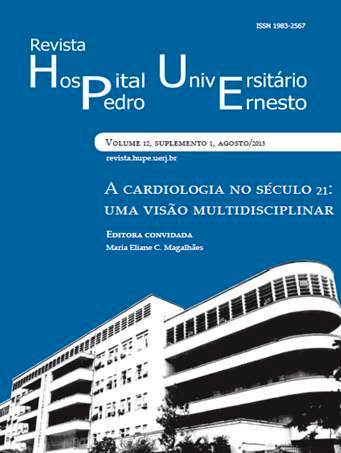The treatment of systemic rheumatologic diseases: a critical analysis of NSAIDs considering cardiovascular risk
DOI:
https://doi.org/10.12957/rhupe.2013.7085Abstract
Revista HUPE, Rio de Janeiro, 2013;12(Supl 1):74-80
doi:10.12957/rhupe.2013.7085
Non steroidal anti-inflammatory drugs (NSAID) are widely used throughout the world and particularly among women with rheumatic complaints and older than 45 years of age. Those ciclo-oxigenase (COX-2) selective agents are often used for long periods. The most widely known adverse events occur within the gastrointestinal system and include peptic ulcer disease and upper digestive haemorrhage. However acute renal insufficiency, arterial hypertension and acute ischemic coronary disease (MI) and congestive heart failure which have all been largely reported, have higher mortality rates than those caused by cervical cancer. During the last few decades, cardiovascular adverse events are being more frequently described mainly with the COX-2 selective agents use. This way, the identification of cardiovascular risk factors (CV) in patients for whom an NSAID may be prescribed became mandatory today. The main mechanism of action of these agents is the inhibition of prostaglandin (PG), however and depending on which isoform of this enzyme is inhibited; vaso-occlusive mechanisms may be stimulated. Thus, selective COX-2 inhibition, which is involved in prostacyclin (PGI2) formation, whose action is essentially antithrombotic, vasodilating promotion, platelet adhesion and aggregation reduction, contributes to the onset of adverse cardiovascular events. The use of NSAIDs among patients with rheumatoid arthritis including COX-2 selectives or classic agents, were found to be more associated with cardiovascular events compared with placebo. In the general population, NSAID with partial COX-2 selectivity may increase the risks of cardiovascular death and frequency of cerebrovascular accident (CVA). The combination of these findings put together with the wide use of these drugs reinforces the need for a critical analysis of their risks to each patient for whom these agents are prescribed.
Keywords: Anti-inflammatory agents, nonSteroidal; Adverse effects; Cardiovascular diseases; Risk.


